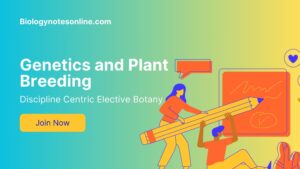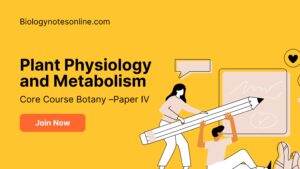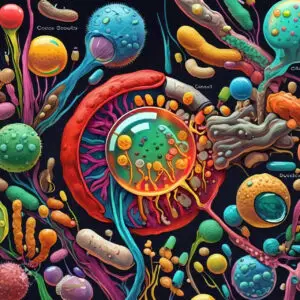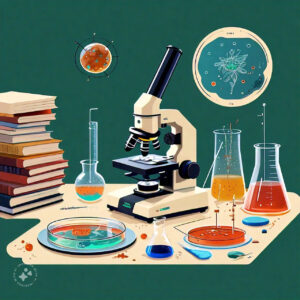
Free
This course offers an in-depth exploration of the fundamental principles of genetics and their application in plant breeding. It is designed to provide students with a comprehensive understanding of heredity, genetic variation, and the techniques used to improve crop plants. Through lectures and practical sessions, students will gain insights into Mendelian genetics, chromosomal behavior, mutation … Read more
Number of Topics: 9

Free
This course in Economic Botany focuses on the economic importance of various plants and their role in human life. Through this course, students will gain an understanding of the origins, uses, and characteristics of several economically significant plant groups. The theoretical component is designed to provide in-depth knowledge about the diverse plant species and their … Read more
Number of Topics: 8

Free
This course provides a comprehensive overview of the biodiversity within the domains of microbes, algae, fungi, and archegoniate plants. It explores the fundamental characteristics, classification, and ecological significance of these organisms. Emphasis is placed on their structure, reproduction, and economic importance, equipping students with a foundational understanding of these vital components of the biosphere.
Number of Topics: 7

Free
This course offers a comprehensive exploration into the physiological processes and metabolic pathways fundamental to plant life. Designed for advanced undergraduate or graduate students in plant sciences, this course integrates theoretical knowledge with practical applications to deepen understanding of plant functions and interactions with their environment. Key Areas of Study: Plant-Water Relations: Explore the critical … Read more
Number of Topics: 9

Free
This course delves into the intricate structures and developmental processes of plants, covering topics from meristematic and permanent tissues to embryo and endosperm development. Students will explore the adaptive and protective systems of plants, secondary growth, and the structural organization of flowers. The course also examines pollination, fertilization, and apomixis, providing a comprehensive understanding of … Read more
Number of Topics: 8

Free
This course, Plant Ecology and Taxonomy, offers a comprehensive exploration of the fundamental concepts in plant ecology and the principles of plant taxonomy. Students will delve into the study of ecological factors such as soil, water, light, and temperature, and their influence on plant communities and ecosystems. The course also covers the structure and dynamics … Read more
Number of Topics: 10

Free
This course explores the fundamental principles of microbial growth and nutrition, as well as methods for controlling microbial populations. Students will learn about the nutritional requirements of bacteria, various types of culture media, and physical and chemical methods for controlling microbial growth. This course is ideal for students in microbiology, biology, and related fields who … Read more
Number of Topics: 2

Free
Explore the world of microscopy with our comprehensive course, “Introduction to Microscopy.” Over six hours, you’ll gain hands-on experience with various microscopy techniques including Bright Field, Dark Field, Phase Contrast, Fluorescence, Transmission Electron, and Scanning Electron Microscopes. This course is designed to provide a solid foundation in microscopy principles, operation, and applications, making it ideal … Read more
Number of Topics: 2

Free
This 5-hour course covers the fundamental techniques used in bacteriology to isolate, cultivate, and maintain pure cultures of bacteria. Students will learn streaking, serial dilution, and plating methods, as well as specialized techniques for cultivating anaerobic and non-culturable bacteria. The course emphasizes hands-on practice and demonstration of these essential skills, providing a solid foundation for … Read more
Number of Topics: 3

Free
This 14-hour course delves into the intricate world of microbial cell organization, exploring the structural and functional components that enable microorganisms to thrive. Students will learn about the diverse range of cell shapes, sizes, and arrangements, as well as the composition and function of cell walls, membranes, and cytoplasmic components. Additionally, the course covers the … Read more
Number of Topics: 7









